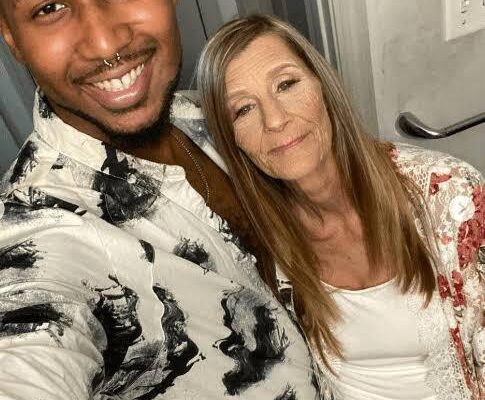
The internet, particularly the vibrant and often volatile landscape of TikTok, has once again become the epicenter of a heated debate. The catalyst? The whirlwind romance and subsequent marriage of [Couple’s Names], a couple whose relationship is defined not only by affection but, more prominently, by a significant 37-year age difference. Their story, a modern-day fairytale (or cautionary tale, depending on your perspective), unfolded over a mere five months, culminating in a wedding that has ignited both celebration and condemnation in equal measure.
The couple’s rapid ascent to viral fame began, as many do these days, with engaging content on TikTok. [He/She – Older Partner] , already established on the platform [mention if they had a specific niche – e.g., as a lifestyle vlogger, a fitness enthusiast, etc.], connected with [He/She – Younger Partner] through [Mention how they met – collaborative video, comments, etc.]. Their interactions, initially playful and lighthearted, quickly blossomed into something more. Viewers were drawn to the undeniable chemistry between them, the genuine laughter, and the seemingly authentic connection that transcended the decades separating them.

However, the internet, known for its capacity for both heartwarming support and ruthless criticism, soon turned a more judgmental eye upon the couple. The age gap became a focal point, fueling accusations of exploitation, opportunism, and even predatory behavior. Critics questioned the motivations of both parties, suggesting that [He/She – Younger Partner] was seeking fame and fortune, while [He/She – Older Partner] was preying on youthful naiveté. Comments sections became battlegrounds, filled with hateful rhetoric, unsolicited advice, and assumptions about the couple’s relationship dynamics.
Despite the barrage of negativity, [Couple’s Names] remained defiant, using their platform to defend their love and challenge societal norms. They addressed the criticism head-on, emphasizing their mutual respect, shared values, and the genuine happiness they found in each other’s company. They highlighted the maturity and emotional intelligence [He/She – Younger Partner] possessed, and the youthful energy and perspective [He/She – Older Partner] brought to the relationship. They argued that love, in its purest form, transcends age, and that their connection was built on a foundation of understanding and mutual support, not on superficial factors.

The case of [Couple’s Names] raises profound questions about societal expectations, the role of age in relationships, and the impact of social media on personal lives. It forces us to confront our own biases and preconceived notions about what constitutes a “normal” or “acceptable” relationship. Is it fair to judge a relationship based solely on age difference, ignoring the complexities of human connection and the individual circumstances of those involved? Does social media amplify negativity and encourage online bullying, creating a hostile environment for those who dare to deviate from societal norms?

Ultimately, the success or failure of [Couple’s Names]’s marriage remains to be seen. However, their story serves as a powerful reminder that love, in all its diverse and unconventional forms, deserves to be approached with empathy and understanding, rather than judgment and condemnation. It compels us to critically examine our own beliefs and to consider whether we are perpetuating harmful stereotypes or fostering a more inclusive and accepting society. Their journey, played out on the global stage of TikTok, is a testament to the enduring power of love to challenge convention and spark important conversations about age, relationships, and the evolving landscape of modern romance. Whether they become a lasting symbol of unconventional love or a fleeting viral phenomenon, their story has undoubtedly left its mark on the digital world and forced us to confront our own perspectives on love and relationships.



